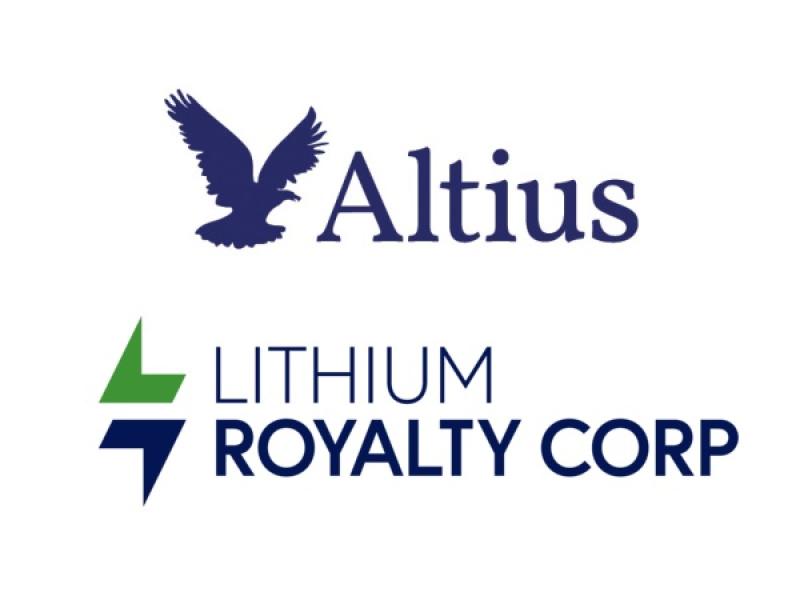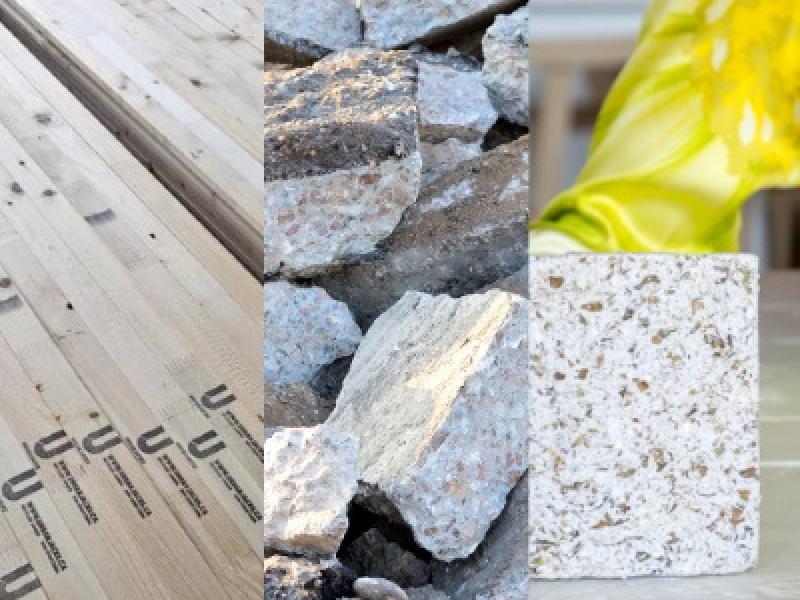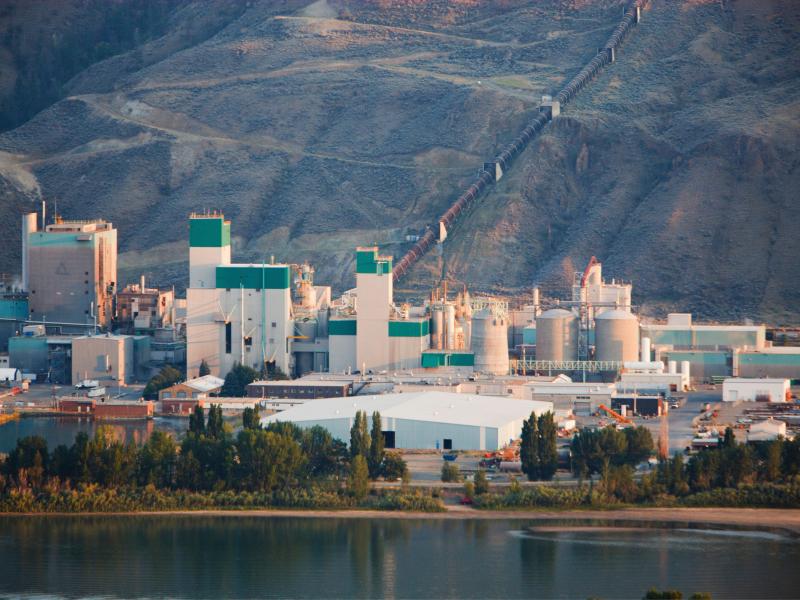Recent Articles
The EV Plug-In: Honda teases electric SUV in 2024
The EV Plug-In: Honda teases electric SUV in 2024
Honda Canada Inc. has revealed the first design sketch of its all-electric SUV Prologue launching in 2024. Also, Natural Resources Canada announced a $3.54-million investment for 810 new EV chargers in B.C. Check out the latest EV Plug-In column.
Volvo using hydrogen-based steel for heavy-duty trucks
• H2 View
To reduce Volvo Trucks’ carbon footprint, the automaker will use hydrogen-based green steel to equip its heavy-duty trucks, it was announced on May 24. The first steel produced with hydrogen will be used in the truck’s frame rails.
Quebec investing $1.2B to develop green hydrogen plan
After months of gestation, Quebec is giving birth to its Quebec Strategy for Green Hydrogen and Bioenergy 2026, which provides for public investments of $1.2 billion. The government hopes to generate public and private investments that could reach $10 billion.
‘Hydrogen Island’ could produce 1 million tonnes a year
• H2 View
Copenhagen Infrastructure Partners (CIP) announced on May 20 a proposal to build a dedicated artificial island in the North Sea for large-scale green hydrogen production called ‘Brintø.’ The company suggests that Brintø could be operational by 2030.
B.C. funds giant bio-diesel project at Burnaby refinery
Calgary-based Parkland Corp. has received a commitment from the British Columbia government to cover more than 40 per cent of the cost of its proposed $600 million renewable fuels investment at its Burnaby, B.C. refinery.
GHGSat Inc. monitoring methane leaks from space
Montreal-based GHGSat Inc., which aims to be a world leader in the detection of greenhouse gas emissions from space, is poised to significantly boost its data-gathering capability with the launch of three additional satellites on Wednesday.
Ontario to blame for lost LG Chem plant, groups say
Invest Windsor-Essex said the city is losing out on a $2.5-billion plant from the Korean chemical company because the region doesn’t have the electricity capacity needed to host the facility.
Highway 413 could cut through 400 acres of Greenbelt
Opponents of the highway say the solution to southern Ontario’s bottlenecks lies in plain sight: Highway 407. The 150-km stretch of highway, which first became functional in 1997, covers roughly the same cities that the proposed Highway 413 would cover.
Canada’s net-zero opportunities won’t reach everyone
Canada’s provincial governments need comprehensive net-zero climate strategies to drive growth in the green economy, but some are sending mixed policy signals to the companies that will create tomorrow’s jobs, says a new report from the Canadian Climate Institute.
Pension funds challenged by sustainable expectations
Pension fund managers who are slow to incorporate sustainable investment criteria run the risk of failing in their “fiduciary responsibility” to the members of the pension plans they have been entrusted to administer.
Florida neighborhood employs a microgrid like no other
A new microgrid now operating near Tampa, Fl. is bringing optimism and growth potential to the microgrid industry, due to the technology it uses, the customers it serves, and the cost recovery structure it employs.
Fridges consuming more energy than people
“The issue isn’t that Americans should be going without air conditioners, let alone refrigerators. It’s that the world needs to prioritize how to get much higher levels of energy to the poorest countries in the world,” Siobhan McDonough writes in VOX.
NYC timber house a template for sustainability
This six-storey mass timber condo does almost everything right — it has triple-glazed windows, an Intello+ smart air barrier all sealed up tight with Tescon Vana tapes, and Zehnder energy recovering ventilators for fresh air.
Can we float our way out of sea level rises?
Welcome to Schoonschip, a floating neighbourhood designed to rise with the water level in Amsterdam. As the canal splashes beneath Schoonschip’s houses, inside, residents are living in what some architects see as the climate-resilient future of urban housing.
5 things I learned being a sustainability consultant
• GreenBiz
Action, innovation and changing the world — this is what I envisioned when I first entered sustainability consulting 10 years ago. Much of what I imagined became a reality. Here are five key things I learned about being a sustainability consultant.
Kelp is weirdly great at carbon removal
A Portland, Maine-based startup Running Tide wants to use kelp buoys to fight climate change. The plan might not work, but its story could still be a preview of our climate future.
Schools introduce carbon labelling to reduce emissions
Over 300 colleges and universities will introduce carbon labelling to their dining halls, indicating which recipes have lower relative social and environmental impacts based on eight factors such as GHG emissions, water usage, land use, soil biodiversity, and labour conditions.
German startup digitizes food system to reduce waste
• GreenBiz
Startup Choco, on the heels of a substantial funding round, is proposing the digitization of food systems as one way to combat that waste. The Berlin-based company has created a platform that connects food suppliers to directly restaurants and cafes.
In Tanzania, carbon offsets preserving life
Carbon offsets have been criticized for failing to provide carbon savings and ignoring the needs of local communities. But in Tanzania, hunter-gatherer tribes are earning a return for their carbon credits and protecting their forests from poachers and encroaching agriculture.
How climate change may change NWT forests
The Northwest Territories’ climate has warmed by two degrees in the past 70 years. A report released last week offers the first comprehensive analysis of how those rising temperatures and shifting precipitation patterns are affecting the territory’s forests.
 Industry Events
Industry Events
-
ECO IMPACT 2026
Feb 19 2026
to Feb 20 2026
The Westin Calgary
-
BuildGreen Atlantic
Apr 27 2026
to Apr 28 2026
Halifax, NS
-
The Evergreen Conference
May 06 2026
to May 07 2026
Toronto, ON
-
Building Lasting Change
Jun 17 2026
to Jun 19 2026
Montréal, QC
-
Retrofit Canada Conference
Jun 24 2026
to Jun 25 2026
Halifax Convention Center











